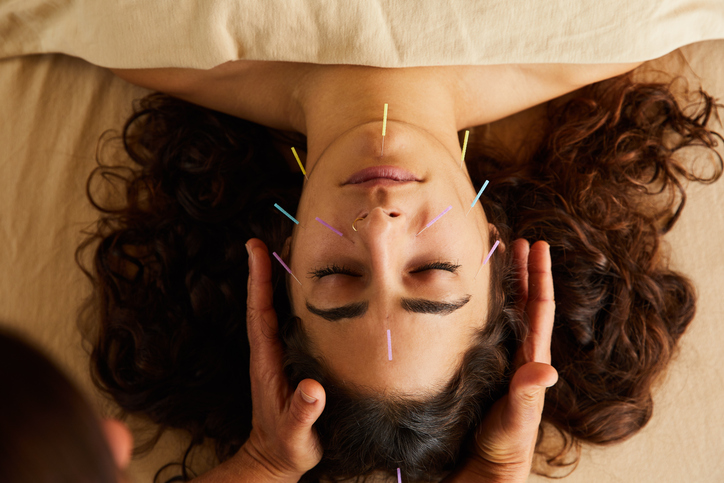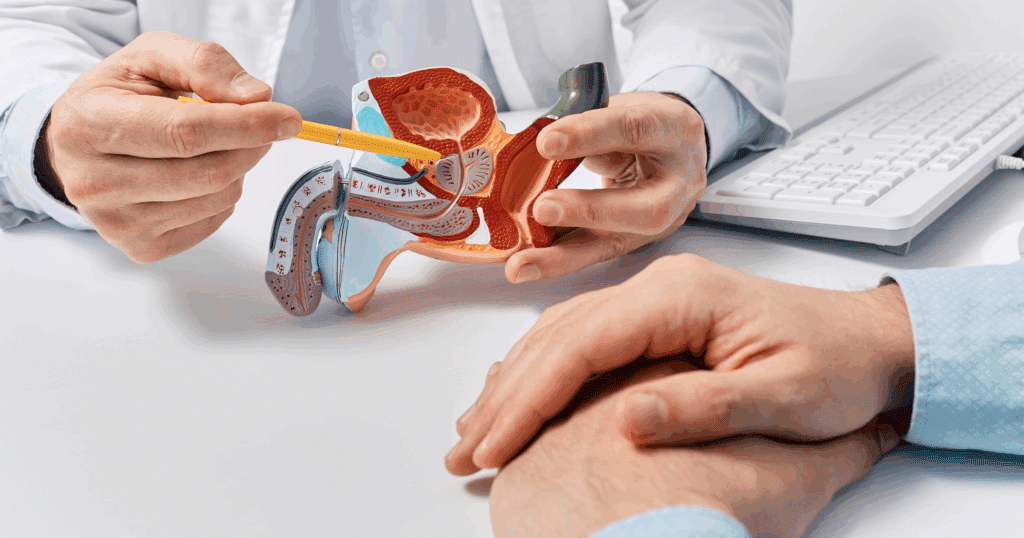Chinese Herbs for Men’s Prostate Health: A Holistic Path to Wellness
The state of men’s prostate health isn’t just a clinical matter—it’s a deeply personal part of overall well-being that influences families, relationships, self-confidence, and the rhythm of everyday life. Prostate concerns can affect men across all backgrounds and ages, often appearing unexpectedly and carrying a significant emotional and physical impact. Understanding this, it’s important to approach prostate health with empathy, knowledge, and an integrated perspective that honors both ancient wisdom and modern science.
Increasingly, men are seeking natural and holistic approaches to prostate care, questioning the limits of conventional medicine and exploring how Traditional Chinese Medicine (TCM) can play a valuable role. Chinese herbs offer a holistic, time-tested path to supporting prostate health by targeting inflammation, promoting circulation, and restoring balance in the body. Navigating this landscape can feel overwhelming—sorting facts from fads, assessing safety, and searching for treatments tailored to your unique needs.
Chinese Herbs for Men’s Prostate Health: A Holistic Path to Wellness
The state of men’s prostate health isn’t just a clinical matter—it’s a deeply personal part of overall well-being that influences families, relationships, self-confidence, and the rhythm of everyday life. Prostate concerns can affect men across all backgrounds and ages, often appearing unexpectedly and carrying a significant emotional and physical impact. Understanding this, it’s important to approach prostate health with empathy, knowledge, and an integrated perspective that honors both ancient wisdom and modern science.
Increasingly, men are seeking natural and holistic approaches to prostate care, questioning the limits of conventional medicine and exploring how Traditional Chinese Medicine (TCM) can play a valuable role. Chinese herbs offer a holistic, time-tested path to supporting prostate health by targeting inflammation, promoting circulation, and restoring balance in the body. Navigating this landscape can feel overwhelming—sorting facts from fads, assessing safety, and searching for treatments tailored to your unique needs.
Key Takeaways
- Chinese herbal medicine supports prostate health by addressing root imbalances like Damp-Heat, Qi stagnation, and Kidney deficiency.
- TCM views prostate disorders as symptoms of systemic disharmony, not isolated organ issues.
- Key herbs for prostate care include Qu Mai, San Qi, and Yi Zhi Ren—each chosen based on individual patterns.
- Herbal formulas in TCM are personalized and often outperform single-herb remedies in clinical outcomes.
- Self-prescribing Chinese herbs without proper diagnosis can worsen imbalances or delay healing.
Understanding the Prostate: Anatomy and Function
What is the Prostate?
Nestled just below the bladder and wrapped gently around the urethra, the prostate isn’t much larger than a walnut in young adulthood. Its job—though often unnoticed—is vital: producing seminal fluid, the nourishing transport for sperm, and contributing to the muscle contractions required for ejaculation.
But what many don’t realize is how sensitive the prostate is to hormonal shifts. Testosterone, dihydrotestosterone (DHT), and estrogen don’t just influence sexual health—they substantially affect tissue growth, inflammation, and cellular turnover in the gland. Even subtle imbalances can set the stage for trouble.
Common Prostate Disorders
Three main conditions shadow men’s well-being: Benign Prostatic Hyperplasia (BPH), Prostatitis, and Prostate Cancer.
- BPH is the noncancerous enlargement of the prostate, almost a rite of passage past middle age. It can feel like you’re never able to fully empty your bladder, waking nightly to use the bathroom, or constantly battling hesitancy and weak urine stream.
- Prostatitis can strike at any age and comes in several forms: acute, chronic bacterial, or the elusive “chronic pelvic pain syndrome.” The last of these can leave doctors stumped and men frustrated as symptoms ebb and flow without clear infection.
- Prostate cancer—the most serious—is often silent initially, but can progress rapidly if not detected. Its risk escalates with age, family history, and lifestyle factors.
Symptoms & Clinical Signs
The so-called “LUTS” (Lower Urinary Tract Symptoms) unite these conditions: frequent or urgent urination, nighttime calls to the bathroom (nocturia), a weak or interrupted stream, pelvic discomfort, blood-tinged urine or semen, and even feelings of incomplete voiding. While none of these are a guarantee of one diagnosis, they are signals from your body worth listening to.
Western Medicine vs. Traditional Chinese Medicine: Prostate Health Perspectives
Western Medical View
Modern urology focuses firmly on anatomy and pathology. It looks for mechanical obstructions (like enlarged glands), infection, or abnormal cell growth. Diagnostic tools—PSA blood tests, digital rectal exams, ultrasound—are the standard. Treatments, too, are primarily pharmaceutical or surgical: alpha-blockers and 5-alpha reductase inhibitors for BPH, antibiotics for infection, and—when needed—transurethral resection or even hormone ablation for cancer.
Outcomes can be excellent, especially with early detection. Yet, so many men report side effects: dizziness, decreased libido, dry mouth, or even incontinence post-surgery. More importantly, the Western approach doesn’t always address the broader experience—the anxiety, the sense of loss, or the desire to reclaim wholeness.
Traditional Chinese Medicine (TCM) Perspective
Through our decades of practice, we’ve watched TCM approach the prostate with an entirely different lens. The prostate doesn’t even have a direct analogue in ancient Chinese texts, but is understood within the realm of the lower jiao (the pelvic region), influenced by the Kidney, Liver, and Bladder organ systems. Health isn’t only about the prostate itself, but the harmony of Yin-Yang, flowing Qi, balanced Blood, absence of Damp-Heat, and freedom from Stagnation.
Where Western medicine isolates and attacks, TCM seeks to harmonize and resolve root causes. And every man’s “pattern” is unique—meaning herbal solutions, acupuncture, and lifestyle guidance are tailored to you, not just your diagnosis.
TCM Patterns and Root Causes in Prostate Disorders
TCM Patterns Associated with Prostate Illness
If there’s one truth in TCM, it’s that symptoms are messengers, not villains. We see recurring patterns in prostate disorders, each calling for a different strategy:
- Damp-Heat Accumulation: Manifesting as burning urination, swelling, and groin heaviness, this is common in men who overindulge in greasy foods, alcohol, or live in humid environments.
- Liver Qi Stagnation: Chronic stress, emotional repression, or frustration can bind up energy, leading to aching, urgency, and even testicular discomfort.
- Blood Stagnation: Often secondary to longstanding issues, it can present as sharp pain or even recognize itself in cancer dynamics.
- Kidney Yang and Yin Deficiency: Aging, overwork, and sexual excess can deplete our foundational energies, giving rise to cold limbs, low libido, fatigue, as well as weak urine flow or dribbling.
Understanding your dominant pattern takes more than a questionnaire—it’s why an in-person or virtual consultation with us so often uncovers connections you never expected.
How Diet, Lifestyle, Emotions, and Aging Influence Prostate Health
You may be surprised by how much daily choices matter. Spicy hotpot on cold nights, endless cups of coffee, and long stressful days—to say nothing of weekend alcohol—can all seed Damp-Heat. Long-term emotional tension or unresolved anger stirs Liver Qi Stagnation, while early morning exercise paired with insufficient sleep erodes Kidney essence. The patterns often start years before symptoms appear, which is why early lifestyle changes offer such powerful prevention.
Chinese Herbal Medicine for Men’s Prostate Health
Principles of Herbal Therapy in TCM
Unlike single-molecule conventional drugs, Chinese herbal medicine is built for complexity. We love how formulas work synergistically—multiple herbs in specific ratios, chosen with care for your unique pattern, not your neighbor’s. This individualized approach not only maximizes efficacy, but reduces the chance of side effects.
Crucially, we stress that self-prescribing herbs can be risky. Without proper pattern diagnosis and professional guidance, it’s easy to select the wrong formula or cause more imbalance. That’s why our practitioners at ACA Acupuncture & Wellness invest so much time in blending the art and science of each prescription.
Key Chinese Herbs for Prostate Health (with Scientific and Traditional Insights)
Diving deeper, here are some of the lesser-discussed yet profoundly promising herbs and their traditional uses, often supported by early scientific research:
- Qu Mai (Dianthus): Revered for draining Damp-Heat from the lower jiao, used for painful urination and swelling.
- Hua Shi (Talcum): Powerful at promoting urination and easing sediment, though regulatory status is complex in the West.
- Zhi Zi (Gardenia) and Dan Zhu Ye (Lophatherum): Both clear Heat and calm irritability, soothing inflamed tissues.
- San Qi Fen (Notoginseng): Famous for moving Blood and stopping bleeding—a boon for hematuria (blood in urine).
- Zi Zhu (Callicarpa): Applied for its astringent effects and ability to soothe inflamed prostate tissue.
- Shan Zhu Yu (Cornus) and Wu Wei Zi (Schisandra): Both strengthen the Kidney and help control urinary leakage, restoring a sense of control and confidence.
- Yi Zhi Ren (Alpinia): A warming Yang tonic that enhances energy and supports bladder control.
- Rou Gui (Cinnamomum): Invigorates the Yang and warms the lower jiao, supporting those with cold sensations and frequent urination.
- Zhe Bei Mu (Fritillaria) and Xuan Shen (Scrophularia): Traditionally used to “soften hardness,” which may aid with nodules or chronic BPH.
What’s even more exciting is the slowly growing body of laboratory and clinical research—bringing together centuries-old wisdom and new scientific discovery.
Most-Studied Formulae for Prostate Health
Clinical experience, especially in China, shows that multifaceted formulas often outperform single-herb remedies:
- Ba Zheng San (Eight-Herb Powder): Time-tested for acute urinary discomfort and Damp-Heat.
- Danggui Beimu Kushen Wan: Combines detoxifying, softening, and blood-moving actions, valuable for stubborn prostatitis.
- Jin Gui Shen Qi Tang (Kidney Qi Pill): Our go-to for men with combined BPH and clear signs of Kidney deficiency—coldness, fatigue, night urination.
- Qian Lie Xian Wan (Prostate Gland Pills): A modern adaptation, blending classic and contemporary herbs for prostate support.
- PC-SPES: Though controversial and no longer available in the U.S., it highlighted the potential for results that rival or eclipse pharmaceuticals—with careful supervision.
Single Herbs and Global Evidence
It’s not only Chinese herbs that matter—global scrutiny shines on saw palmetto, rye pollen, stinging nettle, and pygeum. Meta-analyses point to some benefit, notably in relieving urinary symptoms, though effects can be modest and not universal. As practitioners, we often see best results blending TCM’s personalized herbal wisdom with these globally recognized botanicals, always paying close attention to dosage, purity, and real-world safety.
Integrative and Holistic Solutions for Prostate Health
Diet and Lifestyle Recommendations
Shifting just a few daily habits can help maintain or even restore balance:
- Avoid aggravators: Minimize fried, spicy foods and excessive dairy to curb Damp-Heat. Limit alcohol and caffeine.
- Support the Kidneys and Liver: Incorporate black beans, walnuts, seaweed, leafy greens, and cruciferous vegetables. Reduce red meat and processed sugar.
- Move mindfully: Weight management, pelvic floor (Kegel) exercises, and bladder training all play roles in symptom reduction. Simple routines yield lasting benefits.
Acupuncture, Qi Gong, Physical Activity
Western research is catching up with ancient practice—studies show acupuncture improves urinary flow, eases chronic prostatitis pain, and lowers inflammation. Gentle movement therapies like qi gong promote circulation, ease stagnation, and lower stress hormones, adding yet another tool for self-empowerment.
Bladder and Emotional Health Strategies
Never underestimate the power of emotional well-being in prostate health. Regular meditation, counseling, or simple mindfulness can dissolve stress and lessen urge-related symptoms. Cultivate healthy voiding habits—don’t delay urination, avoid “just in case” trips, and learn to relax pelvic muscles.
Practical Self-care Tips for Men
- Hydration: Drink water throughout the day, and taper off after dinner to minimize night wakings.
- Warmth and Relaxation: Gentle infra-red heating pads and warm baths relax the pelvic muscles and encourage healthy blood flow.
- Bladder Training: Practice “timed voiding”—urinate at regular intervals, gradually lengthening the spacing to retrain the bladder.
- Pelvic Floor Exercises: These little-known routines build both strength and control (ask us for guidance tailored to you).
- Balanced Living: Prioritize sleep, take short rest breaks at work, and honor emotional shifts without judgment. Small steps snowball into big gains over time.
Comprehensive Care and Lasting Solutions for Men’s Prostate Health
Caring for your prostate is an ongoing process, not a one-time fix. As practitioners and partners in your well-being, we believe navigating health challenges should never be done alone or in isolation from your values and preferences. Harnessing the strengths of both modern medicine and TCM gives you the best odds—not just for symptom relief, but for long-term resilience and joy.
At ACA Acupuncture & Wellness, we’re dedicated to helping you find solutions that are compassionate, innovative, and tailored to your story. Whether you’re looking for prevention, symptom management, or support through a serious diagnosis, our door is open. You deserve expertise, kindness, and hope—every step of the way. Let’s advocate for your prostate health together.
Sources:
Cao, H., Mu, Y., Li, X., Wang, Y., Chen, S., & Liu, J. (2016). A systematic review of randomized controlled trials on oral Chinese herbal medicine for prostate cancer. PLoS ONE, 11(8), e0160253. https://doi.org/10.1371/journal.pone.0160253
Yeh, H., Li, T., Tsai, C., Wu, P., Huang, Y., Huang, W. J., Chen, F., Hwang, S., Chen, F., & Wu, T. (2020). The effects of a Chinese herbal medicine (VGHBPH0) on patients with benign prostatic hyperplasia: A pilot study. Journal of the Chinese Medical Association, 83(10), 967–971. https://doi.org/10.1097/jcma.0000000000000384
Frequently Asked Questions
What is the fastest way to shrink an enlarged prostate?
No single “quick fix” exists, but the right blend of herbal formulae matched to your pattern, dietary simplification, targeted acupuncture, and regular pelvic floor practice can result in significant, sustainable improvement over several months. It’s not uncommon for our patients to notice reduced frequency and urgency within the first few weeks—especially when Damp-Heat is the culprit.
What is the best supplement for men's prostate health?
We don’t believe in “one size fits all,” but a combination of TCM formulas individualized through consultation often works best. If you’re seeking over-the-counter options, saw palmetto, rye pollen, and beta-sitosterol have some worldwide evidence—but consult with us for a holistic strategy, especially if you’re on medication.
What is the best tea to shrink prostate?
Herbal teas such as corn silk, cleavers, and chrysanthemum are gentle, cooling, and may reduce mild symptoms. Avoid overly diuretic or stimulating teas, which can worsen frequency. A custom-blended TCM tea is most effective—ask about our in-house options.
Can an enlarged prostate go back to normal?
Absolutely—especially when intervention is early. We’ve seen normalization of ultrasound and symptom scores when dietary, herbal, acupuncture, and exercise changes are begun before severe tissue change. Even in long-standing cases, meaningful improvement is possible.
What is the most successful prostate treatment?
Success is as individual as you are. For many, a combination of Western and TCM therapies is ideal. For BPH, tailored herbal formulas with regular acupuncture captivate most of our clients, minimizing drug dependence and maximizing daily comfort.
What is the 5 second exercise to shrink the prostate?
While trending online, no single “5-second” trick will “shrink” the prostate overnight. However, brief pelvic floor contractions (“Kegels”)—repeating sets of squeezing and releasing the pelvic muscles—can yield firmer control and symptom improvement over time. Ask us at your next appointment for personalized instruction.
Contact ACA Acupuncture & Wellness
Get in Touch
Newsletter Sign Up
LOCATIONS
MANHATTAN
QUEENS
NEW JERSEY
CALIFORNIA

ACA Franchise Opportunities
The over $4 billion US acupuncture market offers a great opportunity with over 10% annual growth rates and a continuing flow of new patients interested in the benefits of acupuncture.





